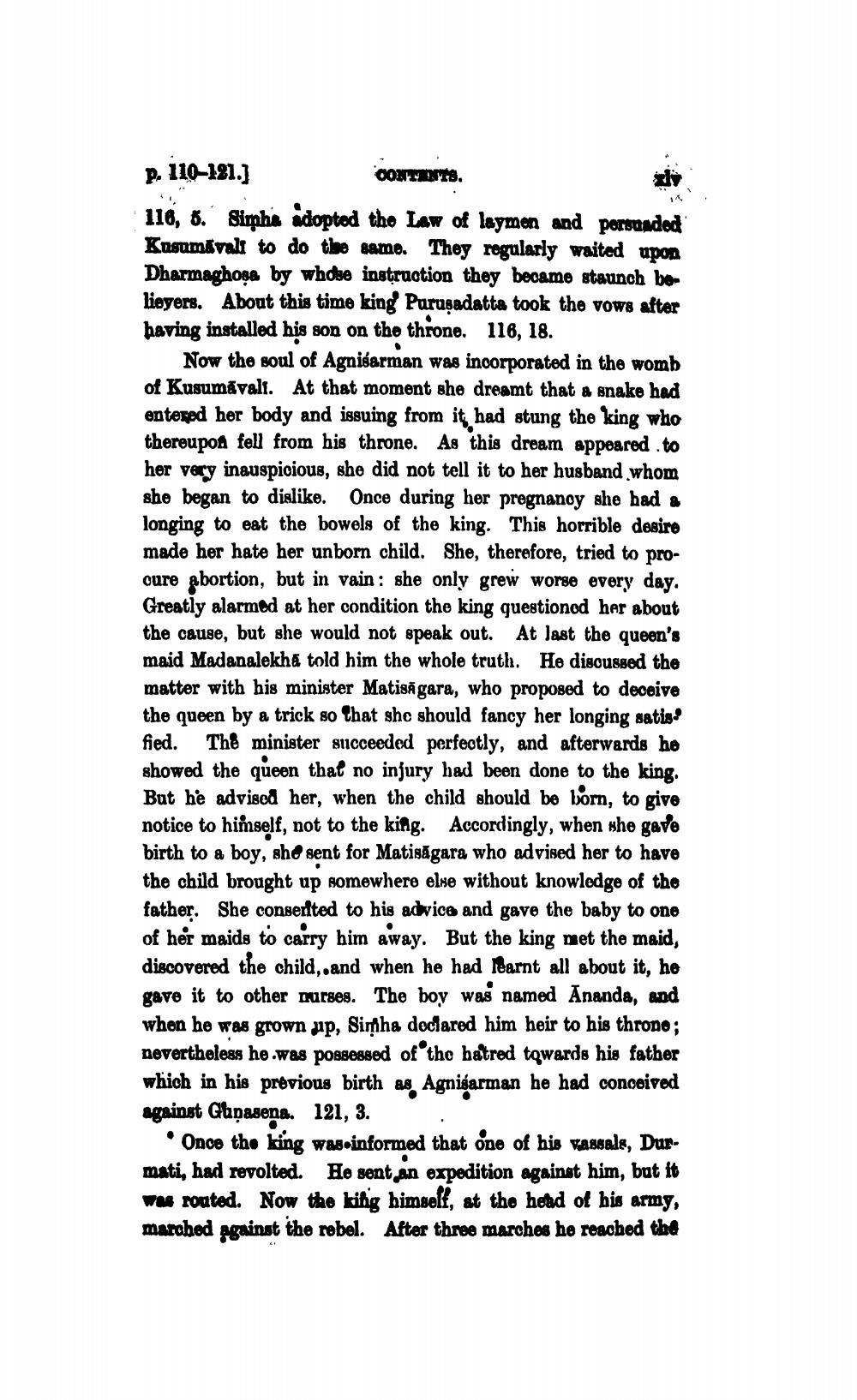________________
p. 110–321.)
ооша. 116, 8. Simha adopted the Law of løymen and porsanded Kusumávalt to do the same. They regularly waited upon Dharmaghosa by whose instruction they became staunch belioyers. About this time king Paruşadatta took the vows after having installed his son on the throne. 116, 18.
Now the soul of Agnisarman was incorporated in the womb of Kusumávali. At that moment she dreamt that a snake had entered her body and issuing from it had stung the king who thereupon fell from his throne. As this dream appeared to her very inauspicious, she did not tell it to her husband whom she began to dislike. Once during her pregnanoy she had a longing to eat the bowels of the king. This horrible desire made her hate her unborn child. She, therefore, tried to procure abortion, but in vain: she only grew worse every day. Greatly alarmød at her condition the king questionod har about the cause, but she would not speak out. At last the queen's maid Madanalekha told him the whole truth. He discussed the matter with his minister Matisā gara, who proposed to deceive the queen by a trick so that she should fancy her longing satis! fied. The minister succeeded perfectly, and afterwards he showed the queen that no injury had been done to the king. But he advised her, when the child should be born, to give notice to himself, not to the king. Accordingly, when she gave birth to a boy, she sent for Matisāgara who advised her to have the child brought up somewhere else without knowledge of the father. She conserted to his advice and gave the baby to one of her maids to carry him away. But the king met the maid, discovered the child, and when he had Marnt all about it, he gave it to other purses. The boy was named Ananda, and when he was grown up, Simha declared him heir to his throno ; nevertheless he was possessed of the hatred towards his father which in his previous birth as Agnisarman he had conceived against Glupasena. 121, 3.
Once the king wasoinformed that one of his vassals, Durmati, had revolted. He sent an expedition against him, but it was routed. Now the king himself, at the head of his army, marched against the rebel. After three marches he reached the




